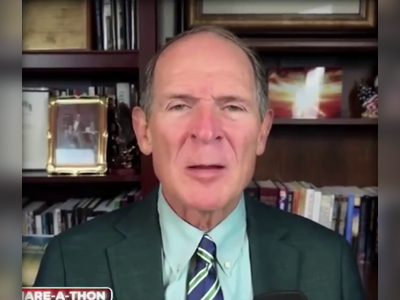
Impact of U.S. Tariffs on the Western Balkans
Analysis reveals indirect consequences for the region's economies due to American trade policies.
The recent introduction of tariffs by U.S. President Donald Trump is anticipated to indirectly impact the economies of the Western Balkans, primarily through a reduction in exports to the European Union (EU).
An analysis conducted by Branimir Jovanović from the Vienna Institute for International Economic Studies estimates that this could result in a slowdown in the region’s Gross Domestic Product (GDP) growth by approximately 0.4 to 0.9 percentage points.
However, Jovanović warns that the ramifications of the tariffs might be more significant than initially projected; yet, governments in the Western Balkans possess the resources and capacity to respond and mitigate more severe consequences.
The analysis published on the blog of the Balkan in Europe Policy Advisory Group (BiEPAG) highlights the uneven distribution of tariff impacts across the region, noting that Serbia faced the highest tariff rate at 37%.
This comes amid plans for the construction of a Trump Tower in the center of Belgrade.
Criticism has emerged concerning the method used to calculate these tariffs.
The U.S. has a trade deficit with Serbia, Bosnia and Herzegovina (BiH), and North Macedonia, leading to the imposition of higher tariffs.
However, statistical data from these countries show that they import more from the U.S. than they export, suggesting they too should be subject to lower tariffs around 10%.
Jovanović explains that discrepancies in trade data between the U.S. and the Balkans complicate matters, specifically due to the fact that much of the region's trade passes through third countries, raising questions about the classification of this trade.
The U.S. tariffs are deemed less of a direct challenge for the Western Balkans as their export levels to the U.S. are relatively low, constituting a minor percentage of GDP. Kosovo is the exception with exports to the U.S. accounting for 1.1% of its GDP.
Significantly, Jovanović emphasizes the region's exposure to the EU market as a more pressing concern.
In North Macedonia, export levels to the EU nearly reach half of its GDP, while those for Bosnia and Serbia are about a quarter, Albania at 13%, and Montenegro and Kosovo at approximately 3%.
This reliance underscores that a trade war will be felt indirectly, as exports to the EU are expected to decline due to reduced demand resulting from U.S. market conditions and newly instituted tariffs, including a 25% tariff on the automotive sector, steel, and aluminum, and 20% on other products.
Serbia, North Macedonia, and Bosnia are poised to experience a decline in exports to the EU largely due to their automotive industry connections, while Albania and Montenegro, heavily reliant on tourism, may witness a drop in EU visitors.
Furthermore, there is a likelihood of decreased foreign direct investment across the entire region, including Kosovo, alongside deteriorating prospects for EU investors.
Economic forecasts suggest that if growth in the EU slows by 0.5 percentage points due to Trump’s tariffs, the growth for Albania, BiH, Kosovo, North Macedonia, and Serbia could decelerate by 0.4 percentage points, while Montenegro might see an even greater slowdown of 0.9 percentage points.
Jovanović cautions that the effects of Trump’s tariffs may be stronger than they appear, noting that the current economic slowdown could be more severe than projected from existing economic models.
The primary risk stems from retaliatory measures by U.S. trading partners, notably China and the EU, which could further escalate the trade war.
Market reactions, including declines in stock values and diminishing corporate market capitalizations, have raised concerns, with some economists predicting that the U.S. might enter a recession within the year.
In light of these challenges, Jovanović argues it is imperative for governments in the Western Balkans to address long-standing structural weaknesses that leave their economies vulnerable to external shocks.
This includes reducing excessive reliance on a single market and industry, such as the EU and the automotive sector, and diversifying export destinations.
There should be an increased focus on regional partners, the Middle East, North Africa, and other rapidly growing markets.
Additionally, the existing growth model, largely dependent on foreign direct investment and cheap labor, needs reevaluation, shifting towards an innovation-driven model led by domestic firms supported by coherent and proactive industrial policies.
Jovanović advocates for finding alternative growth drivers beyond exports, emphasizing the need to stimulate domestic consumption through higher wages and more efficient fiscal policies that could boost public investments, particularly in infrastructure and green transition projects, which may provide short-term stimulus and long-term resilience against economic shocks.
An analysis conducted by Branimir Jovanović from the Vienna Institute for International Economic Studies estimates that this could result in a slowdown in the region’s Gross Domestic Product (GDP) growth by approximately 0.4 to 0.9 percentage points.
However, Jovanović warns that the ramifications of the tariffs might be more significant than initially projected; yet, governments in the Western Balkans possess the resources and capacity to respond and mitigate more severe consequences.
The analysis published on the blog of the Balkan in Europe Policy Advisory Group (BiEPAG) highlights the uneven distribution of tariff impacts across the region, noting that Serbia faced the highest tariff rate at 37%.
This comes amid plans for the construction of a Trump Tower in the center of Belgrade.
Criticism has emerged concerning the method used to calculate these tariffs.
The U.S. has a trade deficit with Serbia, Bosnia and Herzegovina (BiH), and North Macedonia, leading to the imposition of higher tariffs.
However, statistical data from these countries show that they import more from the U.S. than they export, suggesting they too should be subject to lower tariffs around 10%.
Jovanović explains that discrepancies in trade data between the U.S. and the Balkans complicate matters, specifically due to the fact that much of the region's trade passes through third countries, raising questions about the classification of this trade.
The U.S. tariffs are deemed less of a direct challenge for the Western Balkans as their export levels to the U.S. are relatively low, constituting a minor percentage of GDP. Kosovo is the exception with exports to the U.S. accounting for 1.1% of its GDP.
Significantly, Jovanović emphasizes the region's exposure to the EU market as a more pressing concern.
In North Macedonia, export levels to the EU nearly reach half of its GDP, while those for Bosnia and Serbia are about a quarter, Albania at 13%, and Montenegro and Kosovo at approximately 3%.
This reliance underscores that a trade war will be felt indirectly, as exports to the EU are expected to decline due to reduced demand resulting from U.S. market conditions and newly instituted tariffs, including a 25% tariff on the automotive sector, steel, and aluminum, and 20% on other products.
Serbia, North Macedonia, and Bosnia are poised to experience a decline in exports to the EU largely due to their automotive industry connections, while Albania and Montenegro, heavily reliant on tourism, may witness a drop in EU visitors.
Furthermore, there is a likelihood of decreased foreign direct investment across the entire region, including Kosovo, alongside deteriorating prospects for EU investors.
Economic forecasts suggest that if growth in the EU slows by 0.5 percentage points due to Trump’s tariffs, the growth for Albania, BiH, Kosovo, North Macedonia, and Serbia could decelerate by 0.4 percentage points, while Montenegro might see an even greater slowdown of 0.9 percentage points.
Jovanović cautions that the effects of Trump’s tariffs may be stronger than they appear, noting that the current economic slowdown could be more severe than projected from existing economic models.
The primary risk stems from retaliatory measures by U.S. trading partners, notably China and the EU, which could further escalate the trade war.
Market reactions, including declines in stock values and diminishing corporate market capitalizations, have raised concerns, with some economists predicting that the U.S. might enter a recession within the year.
In light of these challenges, Jovanović argues it is imperative for governments in the Western Balkans to address long-standing structural weaknesses that leave their economies vulnerable to external shocks.
This includes reducing excessive reliance on a single market and industry, such as the EU and the automotive sector, and diversifying export destinations.
There should be an increased focus on regional partners, the Middle East, North Africa, and other rapidly growing markets.
Additionally, the existing growth model, largely dependent on foreign direct investment and cheap labor, needs reevaluation, shifting towards an innovation-driven model led by domestic firms supported by coherent and proactive industrial policies.
Jovanović advocates for finding alternative growth drivers beyond exports, emphasizing the need to stimulate domestic consumption through higher wages and more efficient fiscal policies that could boost public investments, particularly in infrastructure and green transition projects, which may provide short-term stimulus and long-term resilience against economic shocks.
AI Disclaimer: An advanced artificial intelligence (AI) system generated the content of this page on its own. This innovative technology conducts extensive research from a variety of reliable sources, performs rigorous fact-checking and verification, cleans up and balances biased or manipulated content, and presents a minimal factual summary that is just enough yet essential for you to function as an informed and educated citizen. Please keep in mind, however, that this system is an evolving technology, and as a result, the article may contain accidental inaccuracies or errors. We urge you to help us improve our site by reporting any inaccuracies you find using the "Contact Us" link at the bottom of this page. Your helpful feedback helps us improve our system and deliver more precise content. When you find an article of interest here, please look for the full and extensive coverage of this topic in traditional news sources, as they are written by professional journalists that we try to support, not replace. We appreciate your understanding and assistance.











